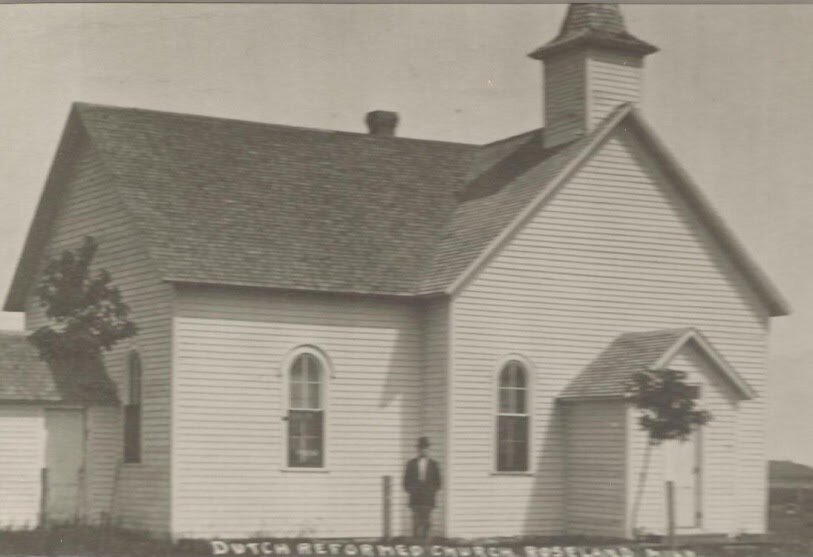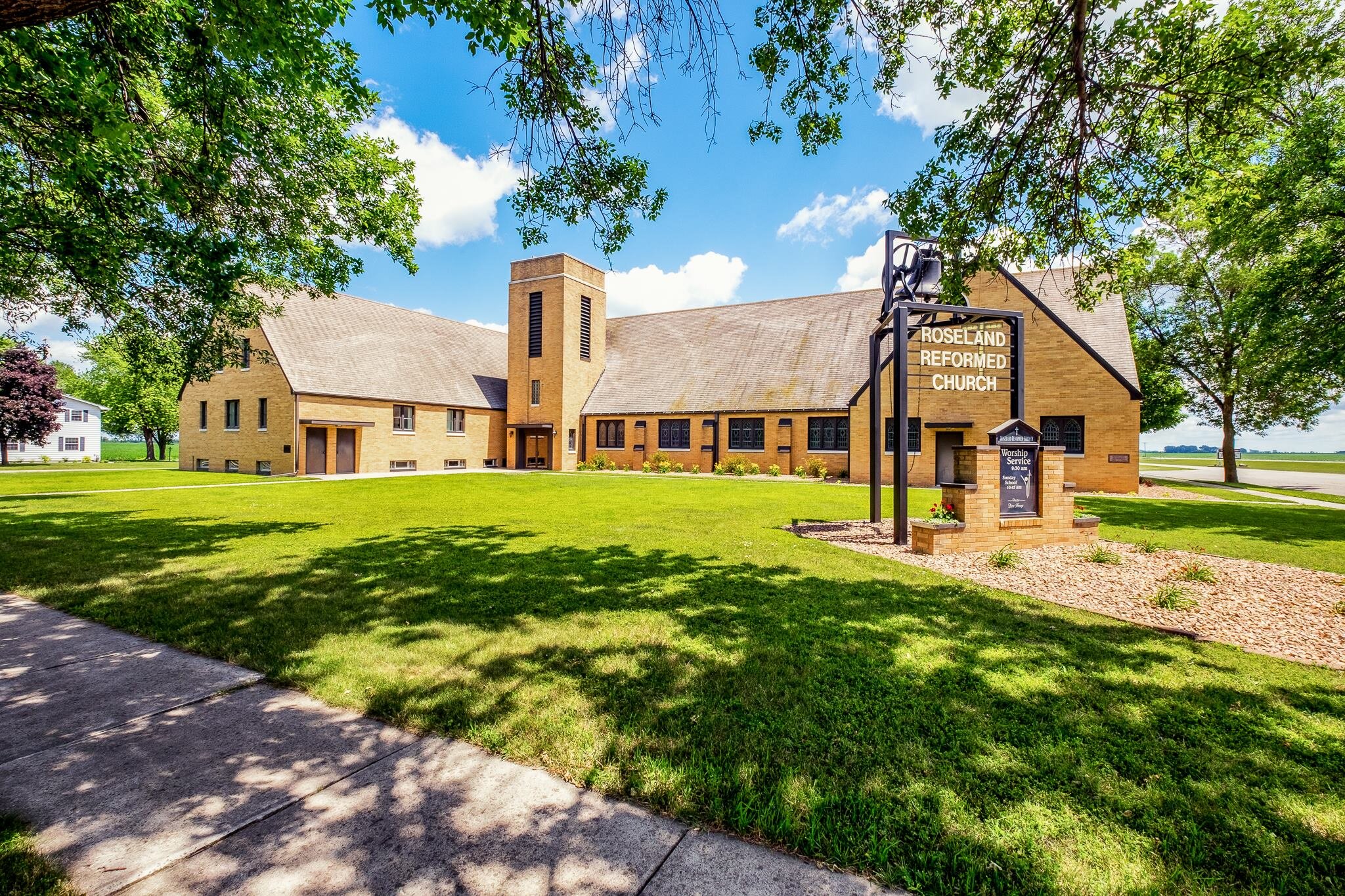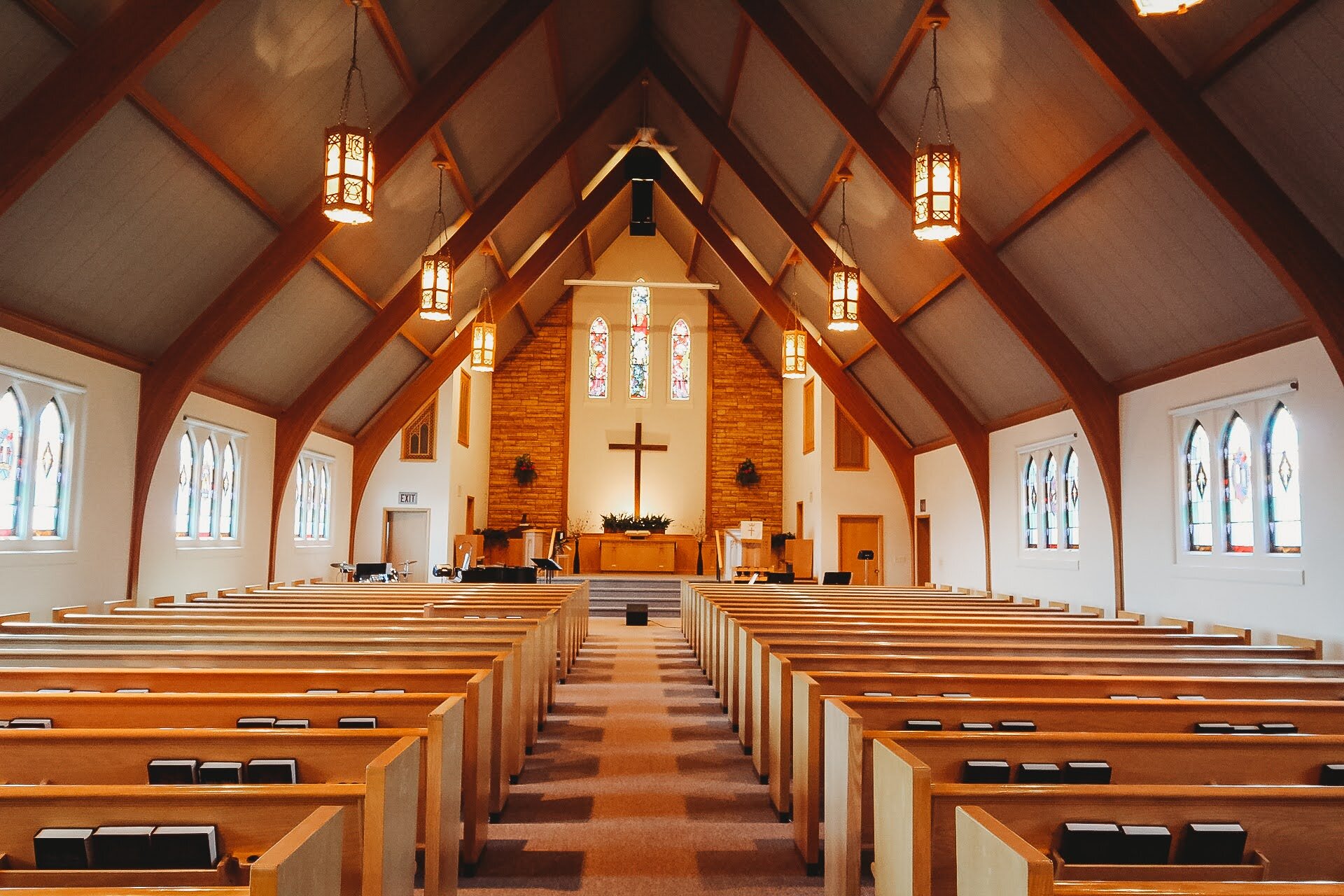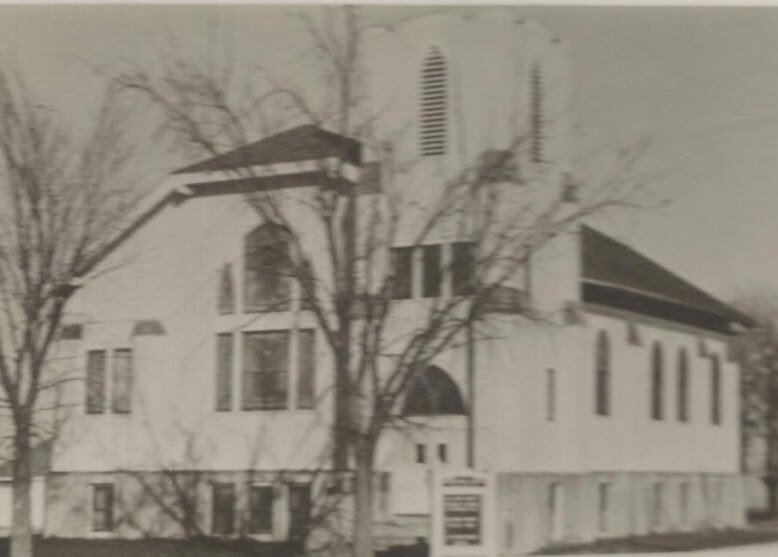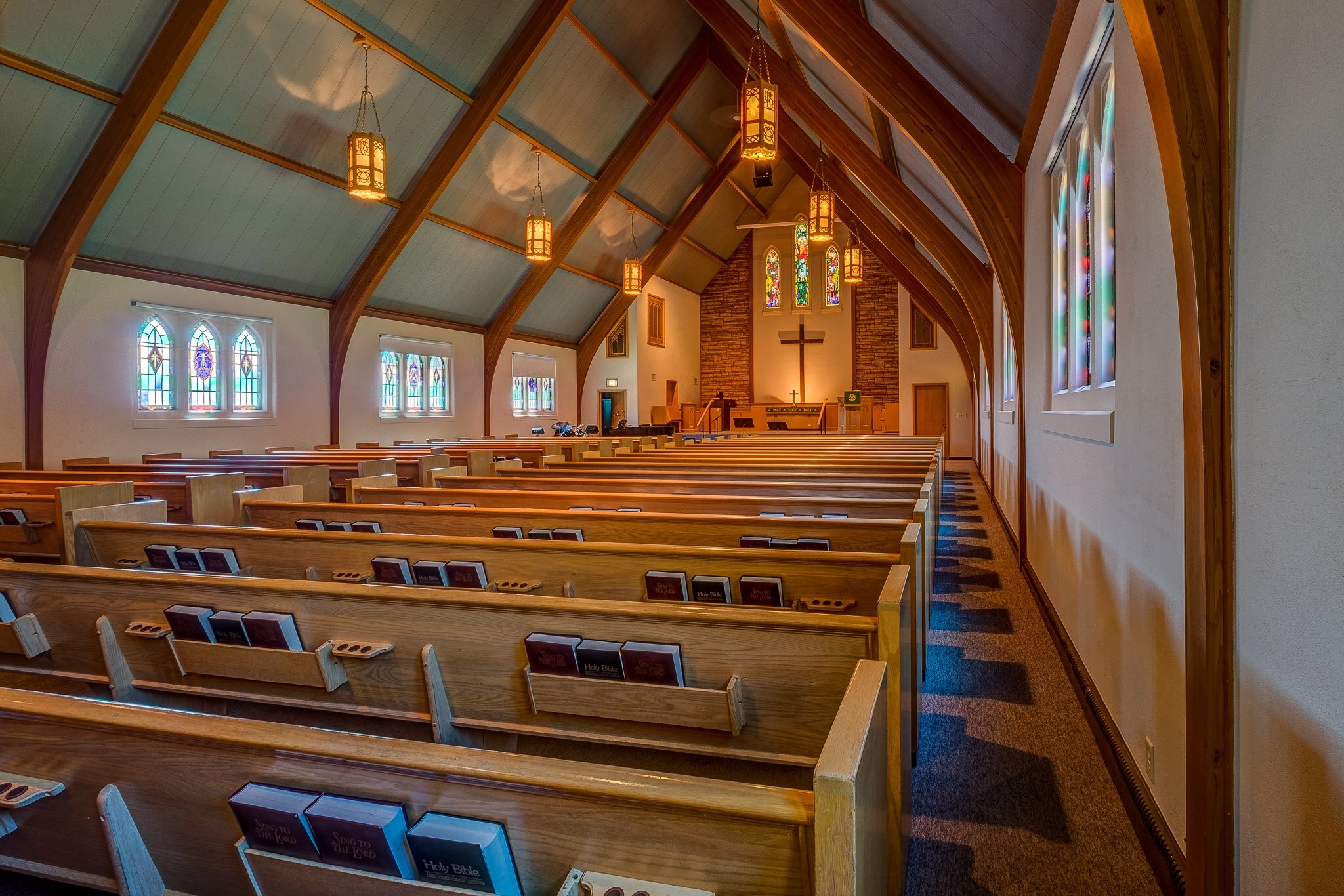
Church History
A source of strength, community and service since 1886
Roseland Reformed Church History
Written by Chad Sportel
When a person drives through Roseland today, one can see a little evidence of the businesses and commerce that once made up this little community. The old school house that once had classes for the children of the community now houses farm equipment; the repair shop that once fixed cars now is used for storage; the gas station which once served the people of Roseland is now privately owned. Other businesses that once existed in the small town are long gone and remembered by only a few. The lumber yard, railroad, grocery store, blacksmith shop, post office, cafe, baseball field, and hardware store are memories now. Of all the businesses that came and went, the local elevator remains. With all the changes that this community has seen since its humble beginnings in 1886, the one thing that has remained a vital to this community from then until now is the church.
The Roseland Reformed Church was the first thing that the handful of settlers who had immigrated to this area of Minnesota established. These early settlers who had last names like: Dykema, Van Den Einde, Gort, Knott, and Damhof. They were lured to this area by farmland and the promise of assistance in building a church. In 1886, they were having their services in a barn at the William Knott farm. Eventually, they would build the first building in 1890. In these early years, the church would be the one thing that these settlers would have that kept their Dutch heritage alive and provided much needed support to these families who were trying to survive and build new lives for their families in the prairies of Minnesota.
Like other surrounding communities, Roseland was booming and soon outgrew their church and built a new sanctuary in 1918. Most of the members of the congregation were involved in the occupation of farming, which was also changing as mechanization was beginning to replace horses and the automobile was starting to make its appearance in the town. Members were also employed as carpenters, shop keepers, and other service jobs.
In the 1930's the people of the community worked hard to help each other out as the country was going through the Great Depression. Times were tough and drought and dust storms were affecting not only Roseland, but the whole country. The church was the institution that held these people together and gave them hope. Led by such pastors as Elmer Borr, the people of Roseland survived. Fond memories exist of this man who frequently visited the farmers and was a source of much encouragement during hard times of the 1930's. Because of his influence, several of the young men of the church would go on to become pastors.
Roseland had its share of young men who were sent off to fight in World War II as the community did its part back home to help the war effort. After the war, Roseland saw an influx in its congregation as they did their part in contributing to the "Baby Boom" that was also affecting the country. By 1957, they had to build yet another church building to house the growing congregation. This building continues to serve the congregation today.
The town of Roseland has changed in recent years. The introduction of the automobile and the decline of the family farm meant that more people would work outside of the community. The town of Roseland is now a bedroom community for the city of Willmar. The Dutch town folks that used to make up the majority of the town, now find themselves neighbors to people and families that have vastly different backgrounds and values. This is a great opportunity for the church to reach out to the community as well as a challenging task to reach the world for Christ.
In the late 1990's, the church was given a tremendous gift of money from a former resident of Roseland. This money was used to build the multi-purpose room and addition in 1999. But more importantly, a large part of this gift was invested and structured to provide money to give to missions and the other scholarship opportunities. This gift has allowed the Roseland Reformed Church to give money to many mission projects and will continue to be a source of funding for many years to come.
The church continues to be active in its community today. Sunday services are held weekly in Roseland, but the church is also active in mission outreach. The church has sent groups to Chihuahua, Mexico and Romania. It continues to support missionaries across the globe and is active in holding church services at a local campground during the summer months. Church league softball continues to be important to the young men and women.
Throughout the years, Roseland Reformed Church has continued to be a source of strength and encouragement. Times have changed dramatically in the last century, but people still need to hear the good news about Jesus now more than ever. A church is more than just a building, it is a group of people gathered together to support each other and to serve its community. In this respect, little has changed.
